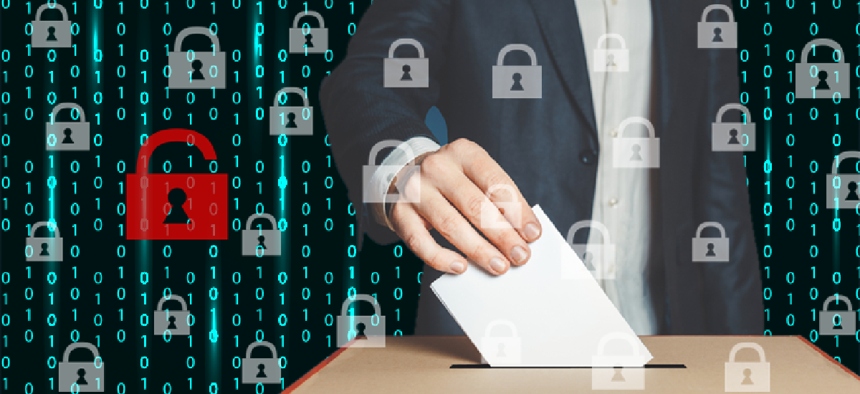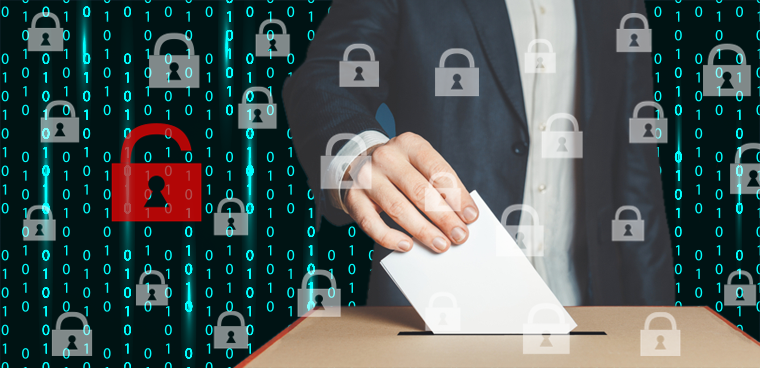Schiff: Trump's vote-by-mail attacks are 'seed' for disinformation campaigns

The House Intel Chair said the president's targeting of absentee ballots provides an anchor for foreign and domestic actors to amplify false narratives about the integrity of the 2020 election.

The chair of the House Intelligence Committee called attacks by President Donald Trump and his allies on vote-by-mail procedures "seed" for foreign and domestic disinformation campaigns to amplify similar messages on social media and other platforms.
At an event hosted by the Institute for Data, Democracy and Politics at George Washington University on June 29, Rep. Adam Schiff (D-Calif.) said Russia remains the top disinformation threat looking to influence the 2020 presidential election, but other countries and domestic actors are also expected to be active.
One issue he expects Moscow to exploit: playing off recent attacks from Trump and casting doubt on "whether the millions and millions of Americans who cast their vote by absentee ballot can be discredited."
"This foundation that the president is laying and now our own attorney general has given seed to, is really an open invitation for malignant powers to exploit," Schiff said. "To amplify this false message that you can't rely on votes by absentee and if you have a close election, the doubt that a foreign hostile power can create by amplifying that false message could be quite disastrous."
Trump has repeatedly questioned the decision of many states to expand absentee voting by mail this year as they deal with the fallout from the coronavirus pandemic, most recently over the weekend when he tweeted that widespread vote by mail "will lead to the most corrupt Election in USA history!"
Despite the president's charges, there is no evidence that ballots sent by mail are more vulnerable to fraud than other forms of voting, and election experts have documented that ballot fraud of any kind is exceedingly rare. Experts advise that absentee voting is not only secure, it's urgently necessary to avoid disenfranchising large numbers of voters who may be afraid to head to the polls during a global pandemic.
The Centers for Disease Control and Prevention advises states to respond to the outbreak by offering "a wide variety of voting options" and implementing "any other feasible options for reducing the number of voters who congregate indoors in polling locations at the same time."
The president, members of his administration and campaign aides have routinely voted by mail in previous elections, and some Republican allies have worried the attacks could be contributing to a partisan gap among voters requesting absentee ballots in a number of states.
Democrats have called for fully funding the U.S. Postal Service, which will be key to ensuring the agency can handle the upcoming crunch of expected ballots sent through mail. The Trump administration has blocked previous efforts by Congress to steer $25 billion in funding to the agency in past COVID relief bills and recently appointed a top GOP fundraiser as postmaster general.
At the same GWU event, Sen. Mazie Hirono (D-Hawaii) said that "the president is so much against being able to vote by mail" that he "doesn't want the Congress to provide any funding to the United States Postal Service."
Hirono stated: "If we don't provide that kind of funding, it could stop all the mail by September or so. That's one of the major reasons we want to get to another COVID package. We feel a sense of urgency that our elections are in jeopardy if we don't provide that funding to our postal service."
Schiff also touched on the role played by social media platforms and tech companies in amplifying such content. While platforms like Twitter and Facebook have shifted policies in recent weeks to label false or unproven posts from Trump about elections and vote by mail, Schiff said the primary problem remains the fact that the platforms' technologies are designed to value what can spread fast and far over what's accurate and true.
Conspiracy theories about election fraud run rampant on social media and sometimes bleed over into targeted advertising online. A recent analysis put out by the Tech Transparency Project -- a research arm of the non-profit Campaign for Accountability -- found that Americans searching on Google for terms like "register to vote," "vote by mail" and "where is my polling place" are often served up advertisements that link to scam websites asking for registration fees or enticing them to download malware onto their computers.
"I asked them [at a recent hearing], in particular Facebook, where among the priorities in their algorithm do they place amplification of engagement?" he said. "That is, the content that is able to titillate or anger or create fear among its users, the potential for virality … where does truth fit in in that hierarchy of values that is exemplified by the algorithm? The answer, it won't surprise you, is 'I can't tell you, I'll have to get back to you.'"
NEXT STORY: Quick Hits


